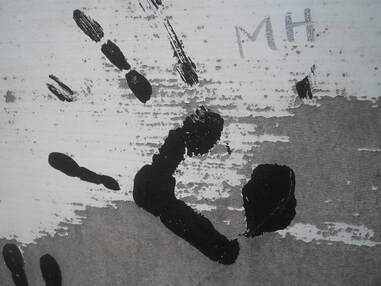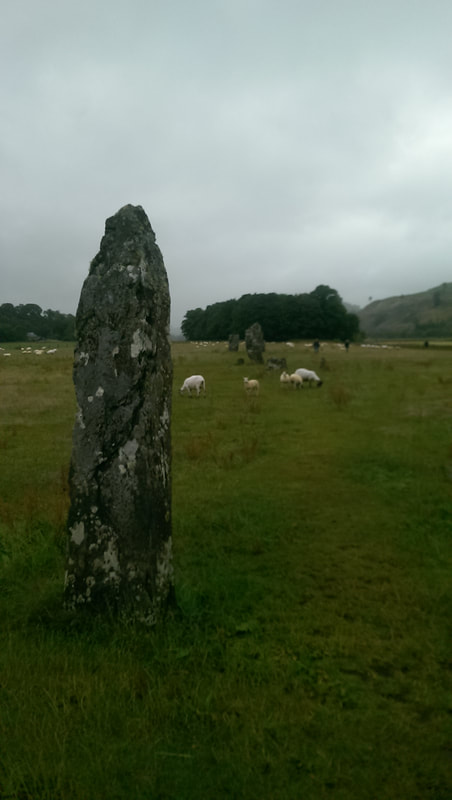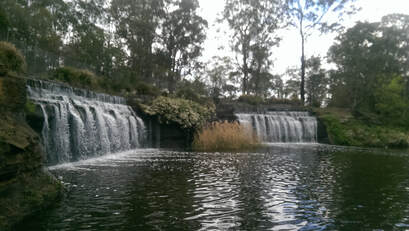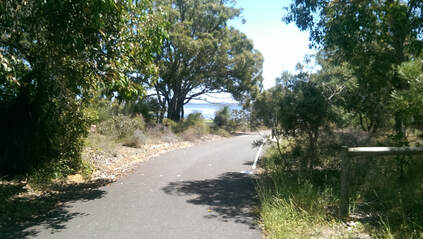 Reflection Sunday 24 May 2020 Acts 1:1-14 As we think about the effects of Covid 19 in the world there are many harmful effects. At this stage no one knows how many people will die from the corona virus and how long it will last. No one knows what the full impact with be on world economies and on the lives of people, especially the poorest and most vulnerable peoples in the world. At the same time many people are also reporting many positive effects of the lockdowns and are reflecting or their lives and re-evaluating their priorities. How are the economic systems impacting on the way we live our lives? Why are things the way they are? What can we change? What are some of the things that I can change in my life to make it the life that I want to live? In the church while many are greatly missing gathering for worship others are enjoying the space to reflect on their lives and the world we live in. This time has forced us into spending time reflecting on the life of the church. Why have we been too busy in the past to spend time in deep reflection? Why is this? What is it that we allow to drive the church? Why is it now that without some of those drivers that we are beginning to look at church life from a different perspective? Perhaps we are now beginning to look at church life more as outsiders look at our churches rather than as insiders? One of the things that has worried me in recent weeks is to hear how ministers and lay people who hold responsible leadership positions in the church report that they are getting busier and busier as each week passes. There is new work to do. New ways of doing work are increasing. There are more meetings online. As well as sitting in front of screens attending online worship services we are also attending church business meetings online even on Sundays. I have scheduled two Zoom meetings for this weekend: one on Saturday and one on Sunday morning. Where is the day of rest? For me these are warning signs. These are warning signs that we may swap one life of busyness for another life of busyness. There will always be far more that needs to be done than we can achieve especially if we are dealing in the needs of people. We may again miss the opportunity o reflect, to set time aside for stillness and silence; to be alone with ourselves and to be alone with God. Stillness and silence are so important for us, for our lives and relationships and for our relationship with God. In the Scripture reading for this week, Jesus tells the disciples to wait, to wait for the promised Holy Spirit, to stay in the city until they have been clothed from on high. Acts 1:4,5 While staying with them, he ordered them not to leave Jerusalem, but to wait there for the promise of the Father. "This," he said, "is what you have heard from me; for John baptized with water, but you will be baptised with the Holy Spirit not many days from now." Similarly, in Luke 24:49 - Jesus says, “And see, I am sending upon you what my Father promised; so stay here in the city until you have been clothed with power from on high." And so we read in Acts 1:12-14 - the disciples returned to the city and went to an upper room and they constantly devoted themselves to prayer, together with certain women, including Mary the mother of Jesus, as well as his brothers. I remember older versions of the bible using the word tarry – tarry a while in the city. The word tarry is often used negatively in sentences. It is seen as wasting time. In a world driven by economic systems, there is no time for tarrying, for dilly dallying, for day dreaming, for reflecting deeply, for stillness and silence; yet it is in the stillness and silence that God is found. Look at Elijah’s experience of God in 1 Kings 19: 11-13 – The word of the Lord came to Elijah saying,.. “Go out and stand on the mountain before the Lord, for the Lord is about to pass by.” Now there was a great wind, so strong that it was splitting mountains and breaking rocks in pieces before the Lord, but the Lord was not in the wind; and after the wind an earthquake, but the Lord was not in the earthquake; and after the earthquake a fire, but the Lord was not in the fire; and after the fire a sound of sheer silence. When Elijah heard it, he wrapped his face in his mantle and went out and stood at the entrance of the cave. Then there came a voice to him that said, “What are you doing here, Elijah?” To tarry a while in stillness and silence is never time wasted. It may be purer worship; what God is longing for us to do and what our souls are crying out for. We spend a lot of time talking at each other and listening to hurtful words that do not come from the well of life - words that are spoken out of fear and desperation, words that are used to control and intimidate and to get others to do what we want. These are not words of life. These are not words that come from a place where one has met with the source of life. One thing that I have learned from Narrative Therapy is that what a person really means or desires is not always conveyed in words. What are the silences saying? What is it that is not being said? What is said between the lines? The silences need to be unpacked gently and carefully; and coaxed out so that one listens with empathy and deeper understandings are formed. Then in that stillness a richness grows between people. It is the same with stillness and silence in God’s presence. Like the disciples and Jesus’ family who devoted themselves to prayer, stillness and silence is a prayer in itself - waiting for the promised Spirit. Prayer: Be still and know that I am God. Let your prayer this week be one of learning to sit still in silence. Perhaps focus on your breath or on the sound of the wind, watch the branches blown by the wind. Try it for one minute. Next time try it for longer. See where this prayer takes you. Song: ‘The Sound of Silence’ by Simon and Garfunkel
0 Comments
 'In God we live and move and have our being’ (Acts 17:28a) What do we really need in our lives? Where are we searching for these things? What is the cost to our life and to the lives of those around us as we try to have these things? John O’Donohue in his book Anam Cara says, ‘The deepest things that you need are not elsewhere. They are here and now in that circle of your own soul’ While Paul was in Athens he stood up on the steps of the Areopagus and commented that he had noticed how religious the Athenians were. Amongst all the idols and objects of worship in Athens, Paul said he had seen an altar with the words inscribed upon t To an unknown God’. Paul went on to suggest that this unknown God is the God who made the world and everything in it, who needs nothing because it is this God who gives life and breath to all people and all things. This God wants people to search and seek and find this God. But Paul says that this God, whom we grope around in the dark looking for, is all the time not far from each one of us. This God is the one in whom we live and move and have our being. We are all children of this God, for this God is our very life. The God whose breath raised Jesus from the dead is the same God who lives and breathes in us. We have no need to go elsewhere or to beyond ourselves. There is a vast ocean of life teeming within us. There is an endless universe to explore and discover in the circle of our soul. Many of us think very little of ourselves and perhaps many of us have not allowed ourselves to live because we have been tricked into thinking that we have nothing of value to offer the world. John O’Donohue says, ‘If you expect to find nothing within yourself except the repressed, abandoned and shameful elements of your past, or a haunted hunger, all you will find is emptiness and desperation. If you do not bring the kind eye of creative expectation to your inner world, you will never find anything there. The way you look at things is the most powerful force in shaping your life. - The soul creates, shapes and peoples our inner life. The gateway to our deepest identity is not through mechanical analysis. We need to listen to our soul and articulate its wisdom in a poetic and mystical form.’ For further reflection - Spend some time with these words. Read them a few times, sit with them in silence, let them sink in, explore them. How will you respond to them? 'In God we live and move and have our being’ (Acts 17:28a) ‘The deepest things that you need are not elsewhere. They are here and now in that circle of your own soul’ (Anam Cara) A Blessing (from Anam Cara) May the light of your soul guide you. May the light of your soul bless the work you do with the secret love and warmth of your heart. May you see in what you do the beauty of your own soul. May the sacredness of your work bring healing, light and renewal to those who work with you and to those who see and receive your work. May your work never weary you. May it release within you wellsprings of refreshment, inspiration and excitement. May you be present in what you do. May you never become lost in the bland absences. May the day never burden. May dawn find you awake and alert, approaching your new day with dreams, possibilities and promises. May evening find you gracious and fulfilled. May you go into the night blessed, sheltered and protected. May your soul calm, console and renew you. Photo: Kilmartin, Scotland  In John 14:6 - Jesus said to Thomas, "I am the way, and the truth, and the life. No one comes to the Father except through me.” “I am the way, the truth and the life.” That’s what Jesus said. These are the words of a song we used to sing in church somewhere in my past. Here is a link to the song https://www.youtube.com/watch?v=ug1OrL57YhI I can imagine Sunday school teachers or perhaps Scripture teachers in schools drumming this into the heads of children – I can almost hear them call out, “What did Jesus say?” And the whole class loudly and enthusiastically responding in unison, “I am the way and the truth and the life.” That’s what Jesus said! Jesus said these words but what did he mean? It seems to me that these words have often been used to exclude people rather than to include people. We string a few texts together and create the way to God as one that involves believing what we believe and our interpretations rather than being open to the way to God being defined in other ways. We narrow our definitions and back them up with Scripture rather than pondering and wondering and reflecting more deeply and broadly on what Jesus may have meant. In Matthew 7:13-14 Jesus says, “Enter through the narrow gate; for the gate is wide and the road is easy that leads to destruction, and there are many who take it. For the gate is narrow and the road is hard that leads to life, and there are few who find it.” How often have we heard about ‘the narrow way.’ If we take these two texts together we can further narrow and exclusively define our understanding of the way to God, the way to life and what is truth. I am not disputing that Jesus said these words, but I am questioning how we interpret and understand them and how they impact our lives and the expression of our beliefs. In the passage (John 14:1-14) Jesus speaks about ‘My Father’s house.’ Jesus says, “In my Father's house there are many dwelling places. If it were not so, would I have told you that I go to prepare a place for you? And if I go and prepare a place for you, I will come again and will take you to myself, so that where I am, there you may be also. And you know the way to the place where I am going." There is a longing in people to find their way home; whether that is expressed as a longing to be at home with God, or to be at home with oneself, to be at peace. We seek ‘the way’ and want to live ‘the life’ and to know ‘the truth’. John O’Donohue, in his book ‘Anam Cara’ (soul friend), gives an illustration of walking home in the dark on an Irish evening through the bleak and cold landscape and the longing within one to gather around the warmth of the fire in the hearth of the home. John O’Donohue says, ‘I love the image of the hearth as a place of home, a place of warmth and return. Jesus talks about preparing a dwelling place for us with God and the possibility of return. Then Jesus says, “And you know the way to the place where I am going.” Thomas responds, “…we do not know where you are going. How can we know the way?” The way to God and that eternal longing for home is not adhering to a set of beliefs about Jesus or God, but in seeing something in Jesus, seeing that God lives in Jesus, that they are one, if one has seen Jesus one has seen God: that God (the Father) is working in Jesus. Through Jesus God is drawing all people home. All that Jesus does, his works of love, of healing, of mercy and forgiveness, of inclusion and restoration, are drawing people home. Jesus says, “And I, when I am lifted up from the earth, will draw all people to myself” (John 12:32). Perhaps rather than fretting about knowing ‘the way’ in words of explanation we might instead find ourselves on that journey home as we still our ourselves and open ourselves to God coming to us and drawing us in, rawing us home. Prayer: Come loving God, draw me home. Draw me to yourself. Continue in me your work of love, of kindness, of mercy and forgiveness, of healing, of inclusion and restoration; that your way and your truth and your life may be experienced and known in the world. We pray for all who long for home. We remember especially all who are feeling disillusioned with life and entertaining suicidal thoughts. May they be at home with you and with themselves in this world. May your blessing rest upon all people and upon all things this day. Amen  Living with our self and with life abundant John 10:1-10 Some people just seem to hate themselves and do anything to run away from themselves and throw themselves into all sorts of activities and busyness: into drugs, alcohol, sex, work, another relationship. Here we are (many of us) for perhaps the first time in our lives, or in a long time, that we have so much more time on our hands; time for our minds to think deeply and broadly about life, about meaning, about ourselves, about our lives. Yet at the same time through the internet our minds have access to something that can divert our attention from perhaps the greatest opportunity we have had to think more deeply about everything. I guess while the internet is very helpful in keeping us in touch with one another it may also be the continuing barrier for us to get in touch with ourselves at a much deeper level and perhaps at points where we may begin to like ourselves more and accept ourselves and even love ourselves more. In one of my favourite verses from John’s Gospel (John 10:10) Jesus says, “The thief comes only to steal and kill and destroy. I came that they may have life, and have it abundantly.” John emphasises that Jesus came that we might have life. The abundant life that Jesus invites us to is not simply a belief in our mind about who Jesus is, nor a belief about his death on the cross, nor a belief about the next life, but an invitation to us, to all of us, to the whole world to have life and to have it abundantly. Who could the thieves be that steal and kill and destroy life? What steals our life away? Who steals our life away? Could we also steal our own life away? Could we deny ourselves life? Could we go through the whole of our lives without truly living? Could we be tricked into living a life that is not really life? The only person we spend all of our life with is ourselves. All our running around will not lead us to ourselves somewhere out there. All our running away will not be able to leave the self we don’t like behind. All our running around will eventually lead us back to ourselves, back to stand still and then down into ourselves, into the mystery and wonder of who we are, into the mystery of our uniqueness, to letting go of all that we dislike about ourselves, to let go of all the memories that give rise to self-loathing; and to acceptance of ourselves, of our life so far: of our circumstances and mistakes, of our achievements and our dreams; and from that point of stillness and letting go and acceptance, from that little death within, we can begin to live, to experience the life that really is life and then rising again in acceptance of others and life as it is; and with eyes seeing and with all our senses breathing in that abundant life. This is where Jesus goes before us and invites us to follow. John O’Donohue in his book Anam Cara says, To be natural is to be holy; but it is very difficult to be natural. To be natural is to be at home with your own nature. If you are outside your self, always reaching beyond your self, you avoid the call of your own mystery. When you acknowledge the integrity of your own solitude, and settle in its mystery, your relationships with others take on and new warmth, adventure and wonder. Through my reflections I have been encouraging people to go and sit in nature, to observe the natural world and our place in it. Do not be afraid to sit with your self, alone for a while. Prayer: May you find that life, that abundant life which Jesus lived and of which Jesus spoke so often. May you be lead into life in all its fulness. May that life come to you. May the whole world live in abundant life. Amen.  Made known in the breaking of bread Scripture reading: Luke 24:13-15 Aristotle thought of God as the prime mover, something that by attraction causes all things to move, but itself did not move, something that does not depend on anything else for existence. Yet, in the book of Genesis the stories tell of a God who moves toward people, who seeks people out, who comes close and meets with them, journeys with them, walks with them, eats with them, reveals something of God’s nature to them, communicates with them, and wants to be in relationship with them. The stories of the Old Testament continue to speak of a God who seeks people out and who comes to them. In the story commonly referred to as the walk to Emmaus, on the evening of the first Easter day, Jesus comes to two of the disciples and walks with them. As they walk, Jesus explains to them what all the Scriptures say about himself and how the Messiah would suffer before being glorified; yet, they do not recognise him. It is only when he sits at the table with them, when he took bread, blessed and broke it, and gave it to them, did they recognise him. It was then that their eyes were opened. Jesus had come to them as God always comes to us, as God always surrounds us, even though we may never recognise God’s presence. The Lord’s supper reminds us of God’s constant presence and God’s undying love for us, revealed in the suffering Jesus. God moves toward us in love and invites us to move too; towards God and towards others in love. Prayer: O God in whom we live and move and have our being, may we recognise your presence, not only in the breaking of bread and in the gathering for worship but in every place and time and circumstance. May we know that you flow to us and to all creation in love and life. May our eyes be opened. May our hearts respond to your love. May we live. Amen. |
AuthorMinister of Campsie Earlwood Clemton Park Uniting Church Congregation Archives
March 2024
Categories
All
|

 RSS Feed
RSS Feed
